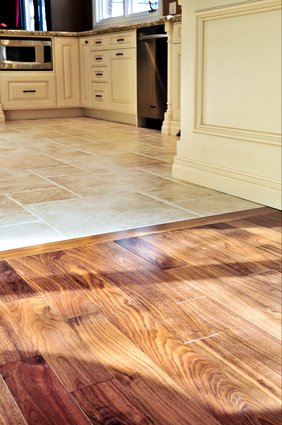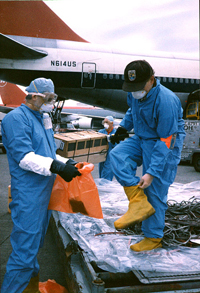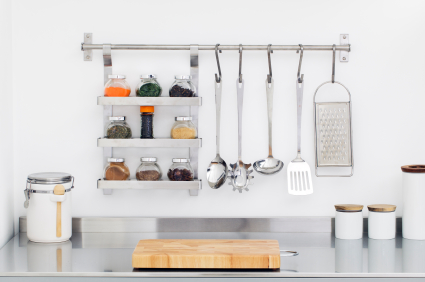How to Remove Stains from Granite Countertops
When it comes to installing new countertops in your kitchen or bathroom, few options have the beauty and durability of granite. Granite countertops are among the most desired choices because of their wide ranging design options which include a variety of natural colors and patterns and they also add value to your home. While granite countertops tend to be somewhat easy to maintain, they are still susceptible to staining, especially if a spill is not cleaned up right away or if the granite is not sealed.
If you spill something on the countertop or encounter a stain while cleaning the granite, follow these generic steps to remove stains from granite countertops:
- Identification: Identify the type of stain first before cleaning it.
- Quick Action: Start cleaning the granite immediately because the stain will become harder to remove the longer it sits.
- Soft Cloth: It is best to use a soft white cloth or a paper towel.
- Blot the Stain: Do not rub the stain.
- Chemicals: Only use appropriate chemicals and never use too much.
How to Clean Granite Countertops
Granite countertops are available in many unique natural colors such as white, black, blue, and gold as well as natural marbled or speckled patterns. Most types of granite countertops do not require a seal because they are naturally stain and moisture resistant. In order to stay free of stains, these countertops must be cleaned on a regular basis and all spills on the granite countertops should be blotted up right away and rinsed with mild soap and water. However, if the stain has some time to settle in before you discover it, you will need to try one of the following stain removal methods.
Granite Countertop Stain Removal
If you discover any type of stain while cleaning granite countertops, the first thing you should do is identify the stain. Take note of where the stain is and what this area of the countertop is used for as well as the size, color, and shape of the stain. Once you have identified the stain, use the appropriate cleaning solutionA solution is a homogeneous mixture of two or more substance... More to remove it from your granite countertop.
- Soap Scum: Dish soaps and other detergents can cause stains if they are not rinsed well enough from the counter. Soap scum stains can be removed using a solutionA solution is a homogeneous mixture of two or more substance... More containing 1 gallon of water to a ½ cup of ammonia. Be careful using this solutionA solution is a homogeneous mixture of two or more substance... More because too much ammonia can dull the granite.
- Algae or Moss from Outside: Moss, algae, and other growth originating from the outdoors can be removed using a mild bleach solutionA solution is a homogeneous mixture of two or more substance... More and flushing the area thoroughly with clean water.
- Oil Based Stains: Stains from grease, cooking oil, and other oil based products cause the granite to darken. These stains can be removed be gently cleaning the granite with one of the following products; soft liquid cleanser with bleach, household detergent, ammonia, mineral spirits, or acetone.
- Organic Stains: Organic stains from coffee, tea, fruit, tobacco, food, leaves, urine, or droppings leave a pinkish brown stain on the granite. These stains should be removed from indoor granite countertops using 12% hydrogen peroxide with a few drops of ammonia. If your granite countertop is outside, remove the source of the stain and allow the sun and rain to naturally bleach it out.
- Metal Stains: Sometimes certain metals such as iron, rustRust is a reddish-brown oxide that forms on iron or steel du... More, copper, or bronze can cause stains in the granite that are usually orange or green to brown in color. If your granite countertop has a stain from a metal object, it is best to contact a stone care professional for stain removal.
- Water Marks: Water marks are very common stains on granite countertops and they often are a result of condensation. These stains can be buffed out with 0000 dry steel wool or cleaning products made specifically for hard water stains on natural stone.
Installing new granite countertops in your kitchen or bathroom can greatly improve the look of the room and increase the value of your home but they require a degree of maintenanceMaintenance is the routine care, inspection, and repair of a... More to stay clean and avoid stains. Many of the stains that commonly occur on granite countertops can be removed with one of the methods mentioned above but if you do encounter a stain that is difficult to remove, contact a stone care specialist for professional stain removal.
Instead of installing new countertops you might consider countertop resurfacing. Refinishing gives your counters, and your kitchen or bath, new life for a fraction of the cost of replacement. For more information about the benefits of countertop refinishing visit www.napcoltd.com.













